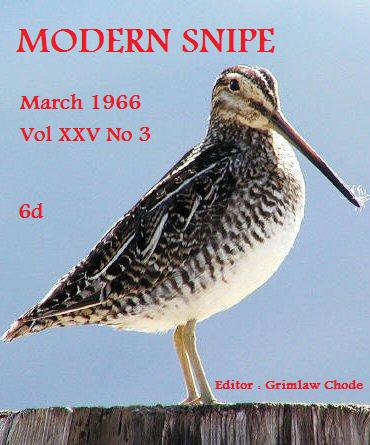Blodgett had a certain militaristic cast to his character, so when he was given command of a pocket battleship it was understandable that he got slightly carried away. He fretted and fussed over his epaulettes and other trimmings of his uniform to a somewhat embarrassing degree, so much so that he neglected more critical aspects of his duty such as keeping a proper log. Thus it is that we do not have a reliable record of his one and only voyage.
This was a time of gunboat diplomacy, and Blodgett’s mission was to anchor his ship in a faraway bay, train his guns on the coast, and to threaten to blow the township there to smithereens unless certain conditions were met. All very straightforward, or it would have been had the ship not had for its navigator a man who had lost his wits. This fellow’s name was Trubshaw, and it is a wonder that he still had the confidence of the Admiralty, for he had been bonkers for years. Instead of steering the ship towards the faraway bay, Trubshaw pored over his charts and barked instructions through a pneumatic funnel that led to the ship becoming encased in pack ice thousands of nautical miles away from its proper destination. There was no township upon which to train the guns, leaving Blodgett at a loss what to do, other than to preen his epaulettes and other trimmings with a little brush.
Trubshaw, meanwhile, was following his own demented star. He took to pacing up and down the poop deck shouting at the sky. Icicles formed on the brim of his navigator’s cap, but he seemed impervious to the cold. Not so the rest of the crew, huddled below decks wrapped in blankets and keeping their spirits up by playing board games and eating sausages. Blodgett kept to his cabin, using his log as a pad for doodling. He had lost radio contact with the Admiralty weeks ago. There was nothing for it but to sit the winter out and wait for the ice to melt.
At this point, I expect the majority of readers will be avid for further details of the board games and the sausages, and I will not disappoint. However, before dealing with those crucial topics, perhaps it is wise to say a few more words about Trubshaw. His insanity was not in doubt, but what has never been established is whether he deliberately stranded the ship in Antarctic waters, or whether within the vaporous murk of his mad brain he honestly believed the ship was heading for that faraway bay. There may be a clue in the words he was shouting at the sky while pacing the poop deck, and by chance we do have a record, albeit fragmentary, of what they were, or some of them at least. By chance an airship packed to the gills with the very latest magnetic cylinder recording technology passed overhead one day, and some of Trubshaw’s shouting was picked up by its monitors and etched onto a cylinder, preserved forever. If you get a special coupon for entry to the sound recordings rooms of the Museum At-Or-Near-Ack-On-The-Vug, you can listen to this bewildering caterwaul. Dobson once planned a pamphlet on Blodgett’s voyage, and transcribed part of Trubshaw’s tirade, but abandoned the essay in favour of his justly famous Bilgewater Elegies. Thanks to Dobson, though, we can reprint the shouting, and gain an eerie insight into the crackbrained navigator pacing the poop deck of that ice-girt pocket battleship so many, many years ago.
“Wheat! Bulgar wheat!†begins the Dobson transcription, “Wheat and gravel and sand and grit! Powdered paste! Paste in puddles! Gravel and sand a-criminy! Pitch and tar and globules of black, black, blackened goo! Cracking pods squelching underfoot! Pods of ooze and glue! Pitted black olives in a jar, pitted and black like a black pit! Cracked bulgar wheat and cracking sand! Black pudding! Vinegar down your throat! Malt and muck underfoot in vast paste puddles of goo!â€
It is difficult to know precisely what to make of this, except to conclude that Trubshaw was completely off his head and that, charts and barked instructions to the crew notwithstanding, navigation was not uppermost in his mind. That being so, we can get on to the more diverting business of the board games and the sausages, as promised.
The ship’s cook was a follower of the dietary theories of Canspic Ougat, and that being the case there was little if any animal flesh in his sausages. One might, when munching, occasionally sink one’s teeth into a fragment of pig or goat or starling, but only a tiny fragment, often so tiny as to go unnoticed. The cook made his sausages from an Ougat-approved compaction of mashed up turnips and marshland reeds and grasses, leavened with some sort of secret curd. They came in two sizes, jumbo and cocktail, although the latter were not served on cocktail sticks due to Ougat’s stern prohibition of sausage-piercing. Holes, even the very wee ones made by the average cocktail stick, were anathema to the dietician, for reasons propounded in the preface to his magisterial Codex Sausageiana. Even if you are not particularly interested in sausages, this book is a fantastic read, and I cannot recommend it too enthusiastically. I try to read a few paragraphs every day, much as some people dip daily into the Bible, or into Prudence Foxglove’s Winsome Thoughts For The Dull-Witted. Much of the ship’s cargo hold was occupied by the cook’s crates of sausage ingredients, and he was forever puffing and blustering about his galley, kneading the turnip and marshland reeds and grasses and secret curd and occasional bits of pig and goat and starling into the sausages in which he took such pride, inspecting every single one with a powerful microscope to ensure that it was free of even the most minuscule hole. And of course, the crew gobbled them down greedily at mealtimes, both jumbo and cocktail varieties, for they had nothing else to eat. That’s quite enough about sausages.
Blodgett had made it a condition of his command of the pocket battleship that it be stocked with lots and lots of board games. And so three entire cupboards below the orlop deck were stacked with them, from family favourites such as Plutocrat!, Dentist’s Potting Shed and To The Finland Station to more obscure games like Treat The Dropsy With Leeches, Butcher’s Shop Railings, and Fictional Athlete Bobnit Tivol Cement Running Track Challenge Cup Heat Four. On the rare occasions he popped his head into the cabin where the crew huddled together for warmth through that freezing polar winter, Blodgett was always pleased to see that they were kept fully occupied by one board game or another. The gang of sailcloth patchers took particular pleasure in Patch That Sail!, a fast and furious yet at times slow-moving game involving equal measures of cunning and luck. The board itself represented a piece of sailcloth, and indeed was made of sailcloth, and the players took it in turns, by throwing dice and moving their counters, to patch up the various rips and rents in the cloth with needle and thread. Meanwhile, over in one corner of the cabin, Blodgett was sure to find the crows’ nest men playing a sprightly game of Groaning Widow, a contest so fiendishly complicated that only the superior brainpans of the crows’ nest men had a chance of understanding it. Other, less bright sailors would watch, gawping, for hours, as counters flew around the board, spinners were spun, card-packs consulted, and little plasticine models of characters from The Magic Mountain by Thomas Mann were put in place, knocked over, taken to pieces, remodelled, repainted, and had the heads pulled off them and substituted with special bonus tokens. Only a fresh pan of sausages from the galley would interrupt the crows’ nest men’s concentration, when they would sulkily take a break to feed, having taken snapshots of the board from several different angles to prevent cheating.
And so the winter wore on, until one day the ice melted away and the pocket battleship sailed home. Trubshaw had abandoned ship by this time, stomping off across the ice floes in curiously subdued fashion, no longer shouting at the sky, his face barely visible behind the thick row of icicles dangling from the brim of his cap, stooping occasionally to pluck some kind of primitive edible life form from the cold, cold sea with his fur-bemittened fist. Blodgett watched from the prow of the battleship as his navigator vanished into the white nothingness. Weeks later, they began the return voyage, guided by the stars, which one of the crows’ nest men knew how to read.
Blodgett was of course hauled before an Admiralty Star Chamber to account for himself. Why had he failed to sail to the faraway bay for a spot of gung ho gunboat diplomacy? He burbled and babbled and preened his epaulettes and other trimmings, but at no point did he ever mention Trubshaw. He had even expunged the navigator’s name from the list of crew pinned up on a post at the entrance to the Star Chamber, and inevitably there was no reference to Trubshaw in Blodgett’s hopelessly inadequate captain’s log. Which, I suppose, begs the question: did Trubshaw ever actually exist? Or was he a wraith or phantom, or even a ghoul, of the kind known to haunt ships of the line as they ply the oceans, sailing round and round and round, into the maelstrom?



